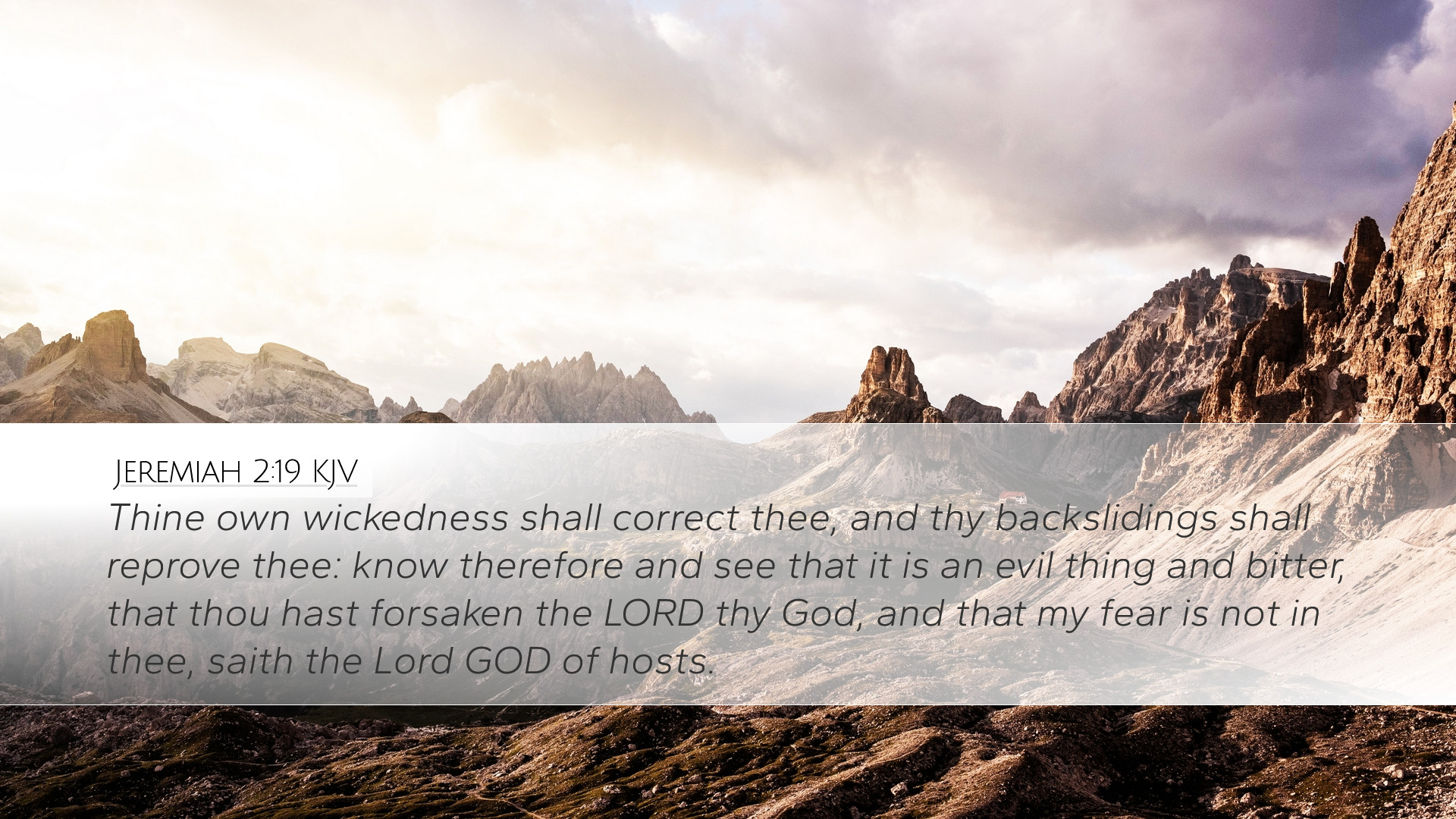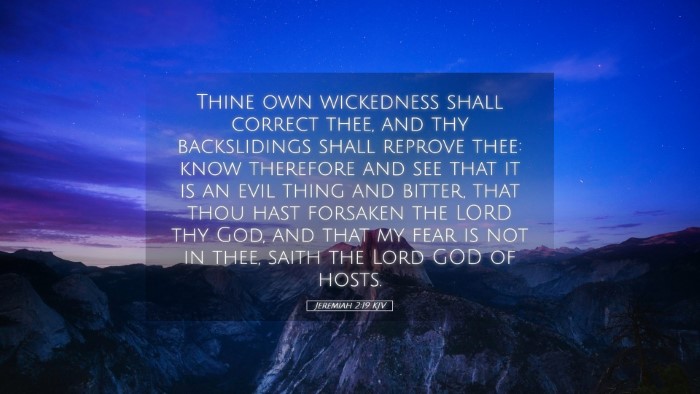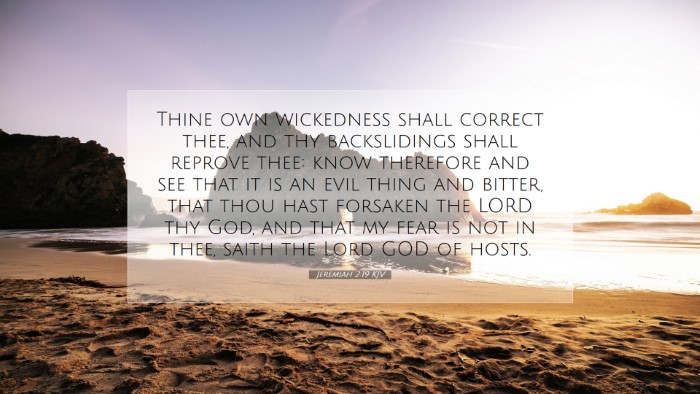Commentary on Jeremiah 2:19
Jeremiah 2:19 states, "Thine own wickedness shall correct thee, and thy backslidings shall reprove thee: know therefore and see that it is an evil thing and bitter, that thou hast forsaken the Lord thy God, and that my fear is not in thee, saith the Lord God of hosts."
Summary of Context
This verse is part of the prophetic message of Jeremiah, which addresses the people of Judah in a time of spiritual decline and impending judgment. It serves as a call to recognize the consequences of their actions in forsaking God.
Insights from Public Domain Commentaries
1. Matthew Henry's Commentary
Matthew Henry highlights the self-destructive nature of sin. He asserts that “thine own wickedness shall correct thee” implies that the consequences of sin are evident in the life of an individual. Unlike external punishments, sin naturally leads to distress and remorse.
Henry emphasizes that the “backslidings” refer to the repeated turns away from God that ultimately prove detrimental. He notes the phrase “know therefore and see” is a direct appeal for self-examination. The Lord calls His people to consider their actions seriously and to grasp the “evil thing and bitter” which is their abandonment of God.
2. Albert Barnes' Notes on the Bible
Albert Barnes focuses on the ethical implications of this verse. He points out that wickedness serves as a “corrective” mechanism whereby individuals experience the ramifications of their refusal to adhere to divine guidance. Barnes elaborates that this principle holds for both individual and corporate behavior among nations.
Furthermore, he interprets “the Lord thy God” as an indication of a broken covenant relationship. The depth of this relationship brings forth the poignancy of forsaking such a bond. Barnes suggests that understanding the fear of the Lord not only reveals reverence but acknowledges His omnipotence, which has been largely ignored by the people.
3. Adam Clarke's Commentary
Adam Clarke emphasizes the psychological impact of sin. He explains that the natural outcome of forsaking God leads to a conscience troubled by guilt and regret. Clarke notes, “thou hast forsaken the Lord thy God,” points to the gravity of abandoning not just moral law but a relationship that is foundational to their identity.
He articulates that the appeal to “know therefore and see” suggests a need for introspection. Clarke additionally points out that spiritual ignorance often leads to a failure to comprehend the magnitude of one’s sin. This represents a plea from God for His people to awaken to the reality of their condition.
Theological Implications
This verse carries significant theological weight, particularly regarding the nature of sin and its consequences. The concept of self-correction through one's wickedness suggests a divinely ordained order where actions result in natural repercussions. Such insights are essential for pastors and theologians as they navigate the complexities of human behavior in relation to divine commandments.
Moral Responsibility
There is a profound emphasis on moral responsibility in this passage. Each individual must take ownership of their choices. The acknowledgment of one’s “own wickedness” as a source of correction reveals a critical step towards repentance and restoration.
God's Call to Repentance
The verse also embodies God's persistent call to His people, urging them to return. The language conveys deep emotion and concern on God’s part. Such communication strategies in prophetic literature encourage readers to perceive God's character as just yet merciful, always desiring restoration over punishment.
Application for Today
For modern believers, Jeremiah 2:19 serves as both a warning and an invitation. The church must heed the call to reflect on its spiritual state. In a culture rife with distractions and moral decay, the principles extracted from this commentary can provide discernment and clarity needed to navigate contemporary issues.
- Self-Examination: Encouraging congregants to regularly reflect on their relationship with God and avoid complacency.
- Understanding Sin: Teaching about the nature of sin as being detrimental rather than merely punitive.
- Call to Action: Mobilizing the community toward repentance and restoration with a renewed commitment to God.
Conclusion
In conclusion, Jeremiah 2:19 provides a poignant reminder of the consequences of forsaking God. Through the insights of revered commentators such as Matthew Henry, Albert Barnes, and Adam Clarke, we gain a multifaceted understanding of the gravity of spiritual decline. As we grapple with the implications of this verse, may it spur us toward a deeper commitment and fidelity to our covenant with the Lord.


